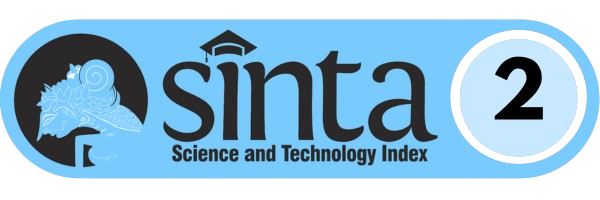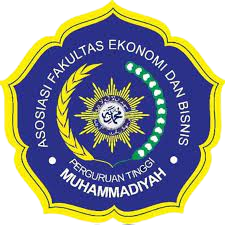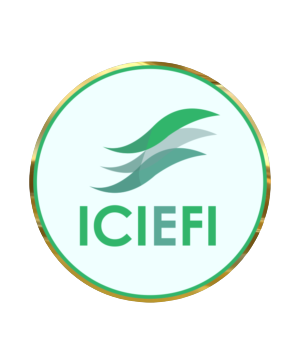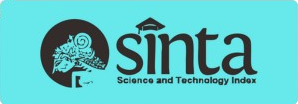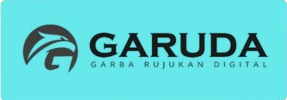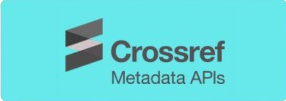Quality Improvement Efforts of DGT’s Internal Compliance Unit (Study at Yogyakarta Small Tax Office)
DOI:
https://doi.org/10.24269/ekuilibrium.v19i1.2024.pp92-106Abstract
The Internal Control System is implemented in the organization as a prevention of fraud risk. The Directorate General of Taxes (DGT) already has an Internal Compliance Unit (hereinafter referred to as UKI) as the vanguard in internal control efforts. However, there are still cases of fraud and Hand-Arrest Operations at the DGT that have questioned the quality of UKI. This study aims to find the constraints experienced by UKI in carrying out internal control monitoring tasks as well as efforts that can be made to improve the quality of UKI. This research method is qualitative with a case study at the Yogyakarta Small Tax Office (STO). The types of data used are primary data and secondary data. Primary data is obtained directly from observations and interviews with informants in the field, while secondary data comes from documents, regulations, and data previously published to data users. The analysis technique was carried out by grouping data, coding, and then presenting a visualization of the results using NVivo 12 plus software. The results of the study found that the ways to improve the quality of UKI at STO are adhering to the Annual Monitoring Plan (RPT) guidelines, increasing the knowledge and soft skills of UKI staff, increasing the use of technology, segregating UKI duties and responsibilities.
References
Arifin, Z. (2017). Tindak Pidana Korupsi dalam Proses Pengadaan Barang dan Jasa Pemerintah. 5(5), 1–14.
Bandur, A. (2019). Penelitian Kualitatif : Studi Multi-Disiplin Keilmuan dengan NVivo 12 Plus. Bogor: Penerbit Mitra Wacana Media.
Choy, L. T. (2014). The Strengths and Weaknesses of Research Methodology: Comparison and Complimentary between Qualitative and Quantitative Approaches. IOSR Journal of Humanities and Social Science, 19(4), 99–104. https://doi.org/10.9790/0837-194399104
Creswell, J. W. (2013). Qualitative Inquiry & Research Design, 3rd Edition (THIRD EDITION). SAGE.
Creswell, J.W. (2019). Research Design Pendekatan Metode Kualitatif, Kuantitatif, dan Campuran (Cetakan IV). Yogyakarta: Penerbit Pustaka Pelajar.
Dwiyanti, D. A. (2022). Internal Control System , Whistleblowing System , Organizational Commitment And Fraud Prevention : Individual Morality As A Moderating Variable. 9(2), 172–188.
Fitri, F. A., Syukur, M., & Justisa, G. (2019). Do the fraud triangle components motivate fraud in Indonesia? Australasian Accounting, Business and Finance Journal, 13(4), 63–72. https://doi.org/10.14453/aabfj.v13i4.5
Hancock, D. R., & Algozzine, B. (2006). Doing Case Study Research, A Practical Guide For Beginning Researchers. In Suparyanto dan Rosad (2015 (1st ed., Vol. 5, Issue 3). Teachers College Press.
Handoko, T. (2023). Kasus Penggelapan Pajak Pengusaha Minyak Curah Kulonprogo, Rugikan Negara Rp8,34 Miliar. Harian Jogja. https://jogjapolitan.harianjogja.com/read/2023/10/20/510/1152301/kasus-penggelapan-pajak-pengusaha-minyak-curah-kulonprogo-rugikan-negara-rp834-miliar
Hariyanto, I. (2019). KPK Tahan 3 Tersangka Kasus Pajak Dealer Jaguar-Bentley. DetikNews. https://news.detik.com/berita/d-4732573/kpk-tahan-3-tersangka-kasus-pajak-dealer-jaguar-bentley?single=1
Kamil, Irfan; Rastika, I. (2021). Kasus Dugaan Korupsi Kepala KPP Pratama Bantaeng, KPK Dalami Kesepakatan Pemberian Uang. Kompas.Com. https://nasional.kompas.com/read/2021/11/12/18284051/kasus-dugaan-korupsi-kepala-kpp-pratama-bantaeng-kpk-dalami-kesepakatan
Khairunnisa, A. S., & Rahadian, Y. (2022). Evaluation of The Role of Internal Compliance Unit on The Effectiveness of Internal Control. Riset Akuntansi Dan Keuangan …, 319–333. https://journals.ums.ac.id/index.php/reaksi/article/view/16787%0Ahttps://journals.ums.ac.id/index.php/reaksi/article/download/16787/7382
Mendes de Oliveira, D. K., Imoniana, J. O., Slomski, V., Reginato, L., & Slomski, V. G. (2022). How do Internal Control Environments Connect to Sustainable Development to Curb Fraud in Brazil? Sustainability (Switzerland), 14(9), 1–21. https://doi.org/10.3390/su14095593
Musmulyadi, M., & Sari, F. I. (2020). Whistleblowing System Dalam Memutus Rantai Fraud Untuk Mewujudkan Economic Growth (Studi Pada Direktorat Jenderal Pajak Indonesia). Jesya (Jurnal Ekonomi & Ekonomi Syariah), 3(2), 292–303. https://doi.org/10.36778/jesya.v3i2.198
Naher, N., Hoque, R., Hassan, M. S., Balabanova, D., Adams, A. M., & Ahmed, S. M. (2020). The influence of corruption and governance in the delivery of frontline health care services in the public sector: A scoping review of current and future prospects in low and middle-income countries of south and south-east Asia. BMC Public Health, 20(1), 1–16. https://doi.org/10.1186/s12889-020-08975-0
Rachman, I., & Dyahrini, W. (2021). The Effect Of Internal Control And Organizational Commitment To Fraud prevention in hospital x in the city of bandung indonesia. Turkish Journal of Computer and Mathematics Education, 12(8), 1038–1043. https://turcomat.org/index.php/turkbilmat/article/view/2985
Rachmawati, A. F. (2021). Dampak Korupsi dalam Perkembangan Ekonomi dan Penegakan Hukum di Indonesia. Eksaminasi: Jurnal Hukum, 1(1), 12–19.
Rohimah, I., & Anna, Y. D. (2019). Faktor-Faktor Yang Mempengaruhi Pencegahan Fraud. Jurnal Riset Akuntansi Dan Perbankan, 13(1), 67–76.
Rustandy, T., Sukamdilaga, C., & Irawady, C. (2020). Pencegahan Fraud Melalui Budaya Organisasi, Good Corporate Governance Dan Pengendalian Internal. JPAK : Jurnal Pendidikan Akuntansi Dan Keuangan, 8(2), 232–247.
Sodikin, A. (2020). Sistem Pengendalian Mutu Pelaksanaan Penilaian Di Lingkungan Direktorat Jenderal Kekayaan Negara. DJKN Kemenkeu. https://www.djkn.kemenkeu.go.id/artikel/baca/12941/Sistem-Pengendalian-Mutu-Pelaksanaan-Penilaian-Di-Lingkungan-Direktorat-Jenderal-Kekayaan-Negara.html
Sudarmanto, E. (2020). Manajemen Risiko: Deteksi Dini Upaya Pencegahan Fraud. Jurnal Ilmu Manajemen, 9(2), 107. https://doi.org/10.32502/jimn.v9i2.2506
Suh, J. B., Nicolaides, R., & Trafford, R. (2019). The effects of reducing opportunity and fraud risk factors on the occurrence of occupational fraud in financial institutions. International Journal of Law, Crime and Justice, 56(November 2018), 79–88. https://doi.org/10.1016/j.ijlcj.2019.01.002
Tickner, P., & Button, M. (2020). Deconstructing the origins of Cressey’s Fraud Triangle. Journal of Financial Crime, 28(3), 722–731. https://doi.org/10.1108/JFC-10-2020-0204
Purnomo, H., & Eriandani, R. (2023). The Effect of Enviromental Uncertainty and Tax Avoidance: The Role of Managerial Ability in Emerging Country. Ekuilibrium: Jurnal Ilmiah Bidang Ilmu Ekonomi, 18(1), 72–82.
Wahyono, D. (2018). Lari Terbirit-birit Saat Di-OTT, Ramli Sudah 9 Tahun Jadi PNS Pajak. DetikNews. https://news.detik.com/berita/d-3977800/lari-terbirit-birit-saat-di-ott-ramli-sudah-9-tahun-jadi-pns-pajak
Wawan, J. (2022). Tumpukan Duit Rp 12 M dan Tas Mewah Barang Bukti Kasus Pajak di Jogja. DetikJateng. https://www.detik.com/jateng/hukum-dan-kriminal/d-6306366/tumpukan-duit-rp-12-m-dan-tas-mewah-barang-bukti-kasus-pajak-di-jogja/2
Yuniarti, R. D. (2017). The effect of internal control and anti-fraud awareness on fraud prevention (A survey on inter-governmental organizations). Journal of Economics, Business & Accountancy Ventura, 20(1), 113–124. https://doi.org/10.14414/jebav.v20i1.626
Zulvina, F. (2020). Internal Control Mechanism in Mitigating Fraud Risk Cases at Account Representatives at KPP Pratama X. The 5th International Conference on Family Business and Entrepreneurship INTERNAL, 19–28.
Downloads
Published
How to Cite
Issue
Section
License
Retained Rights/Terms and Conditions of Publication
1. As an author you (or your employer or institution) may do the following:
- make copies (print or electronic) of the article for your own personal use, including for your own classroom teaching use;
- make copies and distribute such copies (including through e-mail) of the article to research colleagues, for the personal use by such colleagues (but not commercially or systematically, e.g. via an e-mail list or list server);
- present the article at a meeting or conference and to distribute copies of the article to the delegates attending such meeting;
- for your employer, if the article is a ‘work for hire’, made within the scope of your employment, your employer may use all or part of the information in the article for other intra-company use (e.g. training);
- retain patent and trademark rights and rights to any process, procedure, or article of manufacture described in the article;
- include the article in full or in part in a thesis or dissertation (provided that this is not to be published commercially);
- use the article or any part thereof in a printed compilation of your works, such as collected writings or lecture notes (subsequent to publication of the article in the journal); and prepare other derivative works, to extend the article into book-length form, or to otherwise re-use portions or excerpts in other works, with full acknowledgement of its original publication in the journal;
- may reproduce or authorize others to reproduce the article, material extracted from the article, or derivative works for the author's personal use or for company use, provided that the source and the copyright notice are indicated, the copies are not used in any way that implies RCEPM-LIPI endorsement of a product or service of any employer, and the copies themselves are not offered for sale.
All copies, print or electronic, or other use of the paper or article must include the appropriate bibliographic citation for the article's publication in the journal.
2. Requests from third parties
Although authors are permitted to re-use all or portions of the article in other works, this does not include granting third-party requests for reprinting, republishing, or other types of re-use. Requests for all uses not included above, including the authorization of third parties to reproduce or otherwise use all or part of the article.
3. Author Online Use
- Personal Servers. Authors and/or their employers shall have the right to post the accepted version of articles pre-print version of the article, or revised personal version of the final text of the article (to reflect changes made in the peer review and editing process) on their own personal servers or the servers of their institutions or employers without permission from Universitas Muhamamdiyah Ponorogo, provided that the posted version includes a prominently displayed Universitas Muhamamdiyah Ponorogo copyright notice and, when published, a full citation to the original publication, including a link to the article abstract in the journal homepage. Authors shall not post the final, published versions of their papers;
- Classroom or Internal Training Use. An author is expressly permitted to post any portion of the accepted version of his/her own articles on the author's personal web site or the servers of the author's institution or company in connection with the author's teaching, training, or work responsibilities, provided that the appropriate copyright, credit, and reuse notices appear prominently with the posted material. Examples of permitted uses are lecture materials, course packs, e-reserves, conference presentations, or in-house training courses;
- Electronic Preprints. Before submitting an article to an Ekuilibrium: Jurnal Ilmiah Bidang Ilmu Ekonomi, authors frequently post their manuscripts to their own web site, their employer's site, or to another server that invites constructive comment from colleagues. Upon submission of an article to Ekuilibrium: Jurnal Ilmiah Bidang Ilmu Ekonomi, an author is required to transfer copyright in the article to Economy Faculty Universitas Muhammadiyah Ponorogo, and the author must update any previously posted version of the article with a prominently displayed Economy Faculty Universitas Muhammadiyah Ponorogo copyright notice. Upon publication of an article by the Universitas Muhammadiyah Ponorogo, the author must replace any previously posted electronic versions of the article with either (1) the full citation to the work with a Digital Object Identifier (DOI) or link to the article abstract in Ekuilibrium: Jurnal Ilmiah Bidang Ilmu Ekonomi journal homepage, or (2) the accepted version only (not the final, published version), including the Economy Faculty Universitas Muhammadiyah Ponorogo copyright notice and full citation, with a link to the final, published article in journal homepage.
4. Articles in Press (AiP) service
Economy Faculty Universitas Muhammadiyah Ponorogo may choose to publish an abstract or portions of the paper before we publish it in the journal. Please contact our Production department immediately if you do not want us to make any such prior publication for any reason, including disclosure of a patentable invention.
5. Author/Employer Rights
If you are employed and prepared the article on a subject within the scope of your employment, the copyright in the article belongs to your employer as a work-for-hire. In that case, Economy Faculty Universitas Muhammadiyah Ponorogo assumes that when you sign this Form, you are authorized to do so by your employer and that your employer has consented to the transfer of copyright, to the representation and warranty of publication rights, and to all other terms and conditions of this Form. If such authorization and consent has not been given to you, an authorized representative of your employer should sign this Form as the Author.
6. RCEPM-LIPI Copyright Ownership
It is the formal policy of Economy Faculty Universitas Muhammadiyah Ponorogo to own the copyrights to all copyrightable material in its technical publications and to the individual contributions contained therein, in order to protect the interests of the Economy Faculty Universitas Muhammadiyah Ponorogo, its authors and their employers, and, at the same time, to facilitate the appropriate re-use of this material by others. Economy Faculty Universitas Muhammadiyah Ponorogo distributes its technical publications throughout the world and does so by various means such as hard copy, microfiche, microfilm, and electronic media. It also abstracts and may translate its publications, and articles contained therein, for inclusion in various compendiums, collective works, databases and similar publication.
7. Licensing Terms
Ekuilibrium is licensed under a Creative Commons Attribution-ShareAlike 4.0 International License.
Permissions beyond the scope of this license may be available at https://journal.umpo.ac.id/


